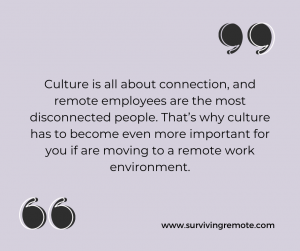Remote work is what most of us are doing at present — and it will continue to be that way. Before the pandemic, there was an exponential growth of people who sought flexibility in their professional lifestyle. Most professionals have realized that it’s pointless to spend 2 hours in traffic, 8 hours in an office where it was hard to get focused, and then two hours to get home. You get home eat dinner and prepare for the same routine tomorrow. Here is a CEO’s guide to remote work success.
Working from home broke with the traditional routine — providing employees the opportunity to improve their work/life balance.
We’ve all read the thousand statistics and studies about how virtual employees are more engaged and productive. But mental health is something that is highly benefited when companies provide their employees with a flexible arrangement as well.
According to statistics, remote workers are happier, reflecting in the way they work and live. Their quality of life is improved when they get to decide where to work, whether it’s in the comfort of their homes or if it’s in a co-working space with tasty coffee.
There are still work challenges for remote workers and their CEO’s
Despite the significant benefits and the great aspects of being a remote worker, some challenges are hard to overcome. 2020 and the pandemic certainly was something no one was ready for.
Old-school companies who barely used technology were the ones who struggled the most adapting to these changes. However, most on-site companies who based their culture and values on the interaction and connection with one another had a rough time as well.
They had to close their offices and change how they worked drastically, discovering how virtual collaboration works and the best strategies to get the results they needed in a remote environment.
Leaders had to break their brains, trying to help their teams thrive in a remote environment. And remote workers also had, and still have, a hard time adapting to working from home.
Whatever your case is — if you find yourself currently surviving remote work, here are five strategies I’ve learned not only from leading a remote company for more than ten years but also by being a remote worker for over two decades.
1. Always Use the Best Tools You Have
It doesn’t matter if you’re the leader of a successful company or a junior employee who landed her first remote job; this advice applies to all. Buy quality tools that encourage you to be the most productive version of yourself.
Working from home doesn’t mean waking up, eating breakfast, and going back to bed with your laptop. Some remote workers do this, but they don’t get the same results as those who have a dedicated workspace. It’s important to create a space that is destined only to work because that way, your brain will associate automatically that when you sit in your home office, you are going to work, and when you lay in your bed, you are going to rest.
However, this also doesn’t mean you need to spend thousands of dollars building your perfect office. Some people have a big room in their homes, buy an amazing-expensive desk, an ergonomic chair, and the latest technologies. But honestly, working remotely is not about having the most expensive gear but having quality gear.
With a good headset, laptop, a second monitor (preferably), a good mic, and Wi-Fi, you’re good to go. If you live in a small place, try setting up a desk with all your equipment. That way, you know that you only go there when you need to work if you have the option of transforming a room in your place into an office, that’s even better.
Analyze your possibilities and think in the best way you can be productive with what you have. It sounds like when they tell you to buy an expensive headset, it is something superficial and unnecessary, but actually, good headsets tend to be costly because they work. In a remote environment where you don’t interact physically with the people you work with, you need to pull off your best communication tools.
If you’re a leader, lead by example. And if you are a remote employee, having a good microphone, camera and headphones will help you communicate better and more efficiently than struggling to hear what your boss or co-worker is trying to say to you.
2. Get Rid of Distractions
Remote workers are more productive than on-site employees. Many studies reveal that working in an office sometimes is even more distracting than working at home. The main reason is that employees get distracted by talking to other coworkers or just hearing the office noise.
However, we all face distractions, no matter where we are. And it’s important to learn how to deal with them to get work done. I remember a time in my life where I had an addiction to play video games or watch funny YouTube videos.
I thought that spending 5 minutes playing a bit will boost productivity when I returned to my tasks. However, those 5 minutes sometimes turned into 2 hours. Yes, I’m the President and Founder of a fully remote company, and I used to waste a lot of my time because of silly distractions – I admit it.
Then I discovered the power of a distraction-free environment. If you know that you are likely to play video games or use TikTok, then block those apps. Some applications help you block other applications that distract you while working.
If you get distracted by hearing your roommates laughing in the living room, buy kick-ass noise-canceling headphones. The key to creating a distraction-free environment is identifying the problem and then coming up with a direct solution. Here are 5 small tips that help you:
- Turn off notifications from your phone (Just the sound of them is already distracting).
- Clean your workspace leaving only the fundamentals.
- Have opened only the necessary tabs you need to do your tasks.
- Focus on one task only and then move on to the next one.
- Build a schedule (and stick to it).
3. Have a Routine That Works for You
Most people crave flexibility – in fact, flexibility is one of the top reasons many employees would like to have a remote job. They get to choose their working hours; they build a schedule based on their needs and have more quality time with their families and friends. However, when you are a remote worker, that flexibility can turn into a double-edged sword.
Therefore, having a routine is incredibly important when you start working remotely. Define what is essential for you and build your schedule. A great way to do it is by having an agenda with your to-do list, keeping in mind the projects you currently have and the tasks that need to be taken care of as soon as possible.
A good way of building a to-do list is to write the most important things at the top of the list and the least important things at the bottom. That way, if you don’t get to finish all the tasks, at least you’ll know you did the ones that really matter.
If you are a remote leader, be sure to tell your employees your expectations. This means to tell them your availability hours and ask them to give you theirs; this way, you know that they won’t be answering at certain hours. On the other hand, if you are a remote employee, the same advice applies here, make sure you know during what hours you can reach your boss and be sure to tell him your schedule as well.
Remote success is all about having the right communication, so emphasizing the expectations of each member of the team will allow everyone to know where they are standing and will allow them to perform better as well.
Establishing a routine is having a schedule that helps you get work done and helps you do the things you enjoy the most. Remote work facilitates the work/life balance most people want, but it is up to each remote worker to make that happen.
4. Build Trust – In a Fun Way
Yes, I know you’ve probably read about building trust a thousand times. But that’s because building trust is fundamental if you want your business to thrive.
Trust is what enables honesty and feedback in teams. If you work in a work environment that is based on fear rather than trust, ideas die. No one wants to get creative because they are way too afraid, and if you’re the leader, you’re seen as the enemy.
On the other hand, if you create a mistake-friendly environment, where you encourage employees to speak up and share their ideas, you will not only build a healthy culture, but employees will trust you and will help you achieve the results you want.
If you’re a remote employee, building trust is about being honest with your leaders, being transparent about your work, and about what you feel can be improved.
This all sounds easier said than done, but building trust remotely is not difficult. It just takes the right strategies. For instance, your top priority should be on communication. Enable the right communication strategies, provide crystal clear guidelines, and conduct productive virtual meetings. Also, try having feedback meetings occasionally to tell your leader/employee how you feel about work and how you feel they’ve done theirs.
One of the best ways of building trust in remote teams is with virtual water coolers. These team-building activities are the perfect space for employees to get to know each other. In physical offices, it was easy to run to the marketing guy on the elevator and discover you both love Pink Floyd. In a virtual environment, you need to make this happen in a fun way. Here are some ways of building trust remotely:
- Celebrating birthdays and special events on Zoom
- Virtual happy hours once a month
- Gaming night
- Sharing fun memes in the group chat
5. Connect with Your Team
Building trust should be a priority in your team, but so does building a connection. The great thing about connecting with your team and the people you work with is a stronger sense of purpose. You no longer do your job because you must or because you need to pay the bills but because you know that you are working for something way bigger than yourself.
In my years of experience being a remote worker and leading a remote company, I’ve learned that culture is not about hitting the bar every Friday after work with your coworkers. Culture means connection, connecting with every single person you work with. Getting to know them, know what they like, their pet peeves, having fun but also helping each other out to be better.
When you build a connection, you build a compromise, and you encourage everyone to collaborate.
And connecting with your team is all about caring for each other. Making the important but basic questions such as Hey, how are you doing today? How is your dog? And questions that make you feel a bit closer to your coworkers/leaders despite the geographic distance.
Ready to Succeed Remotely?
Being a successful remote worker always comes down to your team and how you collaborate. That’s why having the right tools, strategies, and communication channels are fundamental. But it would help if you also kept in mind that establishing relationships with your team is equally important. You are not interacting with them as you would if you were in a physical office. Therefore, caring about your team and making time for each member is necessary. With these 5 strategies, you’ll have a strong foundation that will help you thrive in the remote work environment.
Image Credit: ketut subiyanto; pexels











